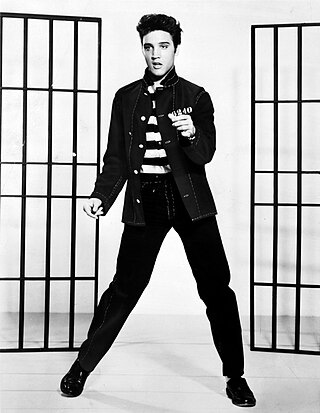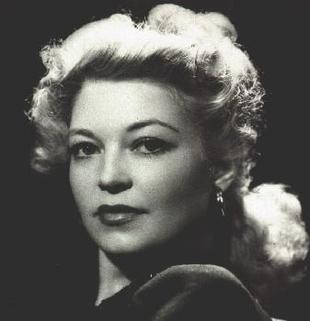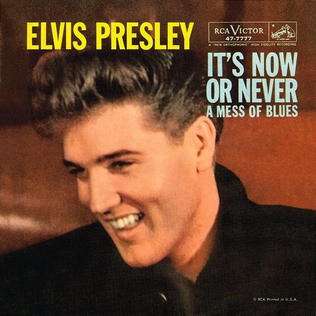This article needs additional citations for verification .(January 2021) |
"When My Blue Moon Turns to Gold Again" is a song written by Wiley Walker and Gene Sullivan in 1940. They first recorded it in 1941.
This article needs additional citations for verification .(January 2021) |
"When My Blue Moon Turns to Gold Again" is a song written by Wiley Walker and Gene Sullivan in 1940. They first recorded it in 1941.
According to Gene Sullivan, the song, “When my Blue Moon Turns To Gold Again,” was written out of necessity. Sullivan commented, “The 1940 recording session that Wiley Walker and I did for Columbia records was a mistake. We didn’t know anything about original songs. We just recorded songs that we liked to sing. The Columbia A & R man, Art Satherley, trashed most of the tunes we recorded and we had to learn six new songs in one day. He finally sat us down and told us that we were going to have to come up with original songs if we wanted to stay in the recording business. That was all new to us because we had never done that. So I started to try to write songs.” “During that time, I was moving my family and everything we owned in our car from Lubbock Texas to Oklahoma City for a new job. I drove all night across Texas looking right into a bright full moon. The moon was so bright that I could even turn off the car headlights and still see the road. And that’s where I got the idea for ‘When My Blue Moon Turns To Gold Again.’ And I wrote that song on that trip.” [1]
One historian noted that "their disc is said to have sold millions". [2]
The song has been recorded by among others:

Elvis Aaron Presley, also known mononymously as Elvis, was an American singer and actor. Known as the "King of Rock and Roll", he is regarded as one of the most significant cultural figures of the 20th century. Presley's energized interpretations of songs and sexually provocative performance style, combined with a singularly potent mix of influences across color lines during a transformative era in race relations, brought both great success and initial controversy.

Cindy Walker was an American songwriter, as well as a country music singer and dancer. She wrote many popular and enduring songs recorded by many artists.

"Kentucky Rain" is a 1970 song written by Eddie Rabbitt and Dick Heard and recorded by Elvis Presley. It was recorded at American Sound Studio and features then session pianist Ronnie Milsap. Other musicians on the record include Bobby Wood on piano, Bobby Emmons on organ, Reggie Young on guitar, Tommy Cogbill on bass and Gene Chrisman on drums. The song and session was produced by Felton Jarvis and Chips Moman. It was certified Gold by the RIAA, signifying United States sales of more than a million copies.
"Blue Moon" is a popular song written by Richard Rodgers and Lorenz Hart in 1934 that has become a standard ballad. Early recordings included those by Connee Boswell and by Al Bowlly in 1935. The song was a hit twice in 1949, with successful recordings in the U.S. by Billy Eckstine and Mel Tormé.

"Are You Lonesome Tonight?" is a song written by Roy Turk and Lou Handman in 1926. It was recorded several times in 1927—first by Charles Hart, with successful versions by Vaughn De Leath, Henry Burr, and the duet of Jerry Macy and John Ryan. In 1950, the Blue Barron Orchestra version reached the top twenty on the Billboard's Pop Singles chart.

Reggie Grimes Young Jr. was an American musician who was lead guitarist in the American Sound Studio house band, The Memphis Boys, and was a leading session musician.
This is a list of notable events in country music that took place in the year 1954.
"Love Letters" is a 1945 popular song with lyrics by Edward Heyman and music by Victor Young. The song appeared, without lyrics, in the 1945 film of the same name, performed by Dick Haymes. It was subsequently nominated for the Academy Award for Best Original Song in 1945, but lost to "It Might as Well Be Spring" from State Fair.
"Have I Told You Lately That I Love You?" is a popular song written by Scotty Wiseman for the 1944 musical film, Sing, Neighbor, Sing and performed by Lulu Belle and Scotty. It was their greatest hit and one of the first country music songs to attract major attention in the pop music field. Although the song was featured in the movie, it was not released by Lulu Belle and Scotty until 1947. The first released version of this song was by Gene Autry in 1945.

"Wooden Heart" is a pop song recorded by Elvis Presley. The composition is based on a German folk song "Muss i denn" and it was featured in the 1960 Elvis Presley film G.I. Blues. The song was a hit single for Presley in the UK Singles Chart, reaching No. 1 for six weeks in March and April 1961.

"Good Rocking Tonight" is a jump blues song originally released in 1947 by its writer, Roy Brown and was covered by many recording artists. The song includes the memorable refrain, "Well I heard the news, there's good rocking tonight!" The song anticipated elements of rock and roll music.

How Great Thou Art is the eighth studio album by American singer and musician Elvis Presley, released by RCA Victor in February 1967. How Great Thou Art is a gospel album with slow numbers on one side, and fast-paced numbers on the flipside. The album earned Presley a Grammy Award for Best Sacred Performance, while it became a Billboard top 20 pop hit and it appeared on the Top Country Albums chart on the top 10.
"(Now and Then There's) A Fool Such as I" is a popular song written by Bill Trader and published in 1952. Recorded as a single by Hank Snow it peaked at number four on the US country charts early in 1953.

"It's Now or Never" is a song recorded by Elvis Presley and released as a single in 1960. The song is one of the best-selling singles by Presley, and one of the best-selling physical singles of all time. It was recorded by Bill Porter at RCA Studio B in Nashville. It is written in E major and has a tempo of 80 BPM.

"Paralyzed" is a 1956 song recorded by Elvis Presley for his album Elvis. The song was recorded on September 1, 1956, and has been well received by music critics. The song was written by Otis Blackwell, with Elvis receiving partial song-writing credit.
"Guitar Man" is a 1967 song written and originally recorded by Jerry Reed, who took his version of it to number 53 on the Billboard country music charts in 1967. Soon after Reed's single appeared, Elvis Presley recorded the song with Reed playing the guitar part, and it became a minor country and pop hit.

"Are You Sincere" is a song written by Wayne Walker, originally released in 1957. Andy Williams recorded the song, which Cadence Records issued as a single in 1958, with an orchestra conducted by Archie Bleyer. Since Williams' success, the song has been covered many times in pop and country styles. Notable covers include versions by: The Platters (1959), Eddy Arnold (1961), Gene McDaniels (1961), Marty Robbins (1961), Lenny Welch (1963), Trini Lopez (1965), Ray Anthony (1968), Bobby Vinton (1969), Brook Benton (1970), Jean Shepard (1973), Elvis Presley (1973), Mel Tillis (1979), Charley Pride (1986),

The singles discography of Elvis Presley began in 1954 with the release of his first commercial single, "That's All Right". Following his regional success with Sun Records, Presley was signed to RCA Victor on November 20, 1955. Presley's first single with RCA, "Heartbreak Hotel", was a worldwide hit, reaching the No. 1 position in four countries and the top 10 in many other countries. Other hit singles from the 1950s include "Don't Be Cruel", "Hound Dog", "Love Me Tender", "Too Much", "All Shook Up", "(Let Me Be Your) Teddy Bear", "Jailhouse Rock", "Don't", "Hard Headed Woman" and "A Big Hunk o' Love". On March 24, 1958, Presley entered the United States Army at Memphis, Tennessee, and was stationed in Germany. He left active duty on March 5, 1960.

"Separate Ways" is a 1972 song by Elvis Presley written by Red West and Richard Mainegra. Elvis Presley recorded the song on March 27, 1972, and released it as a single with "Always On My Mind" as the B-side. It reached gold status in the US for sales of over half a million copies. It was listed as a double sided hit reaching #16 on Billboard magazine's Hot Country Singles chart in November 1972. In the UK "Always On My Mind" was the hit song and "Separate Ways" was the B-side.
{{cite web}}: CS1 maint: archived copy as title (link)